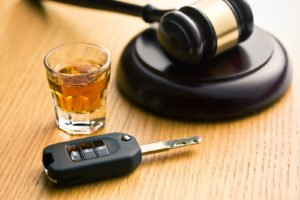- The state of Delaware imposes serious sanctions on those convicted of a DUI
- Preventive measures can be required to reduce the chances of a repeat offense
- Acquiring auto insurance may prove very expensive when a DUI conviction remains on a record
Delaware proudly proclaims itself as “The First State.” Yes, the founding of the United States of America started with Delaware being the first territory to join the union.
Delaware is a small state situated near highly-populated regions of Maryland, Pennsylvania, and New Jersey. The state line is not very far from Philadelphia International Airport, a major hub of traffic.
Enter your zip code above to find car insurance rates that work with your budget!
With so many people driving north and south on I-95 and other major roads, state officials in Delaware must work very hard at making sure safety is a top priority.
This is why the DUI laws in Delaware are fairly strict. Persons who are arrested and charged with a DUI in Delaware may face a dire mix of traffic and criminal court complexities. And yes, auto insurance rates are going to skyrocket in the aftermath of a conviction.
Navigating a DUI in Delaware all starts with understanding the basics of the state’s laws.
DUI Laws
The DUI laws in Delaware are explicitly stated in the legislature.
Blood alcohol concentration (BAC) is what legally defines someone as being “drunk” while driving. In the state of Delaware, the specific BAC level is listed at a minimum of .08 percent. Anyone whose bloodstream is showing .08 percent or more can be easily convicted of driving under the influence.
This is not to say .08 percent is the minimum for being arrested. If a chemical test shows .05 percent, a driver may be arrested.
There are a number of reasons why the police may pull over a driver under the suspicion of a DUI. Erratic or haphazard driving positively would raise suspicions.
Seeing a driver with an open container of alcohol presents more than suspicion. Driving while holding an open container is a crime.
Interestingly, Delaware is only one of seven states in which passengers may legally consume an open container of alcohol.
Drivers who are pulled over for suspicion of DUI do need to realize “The First State” is also an implied consent state.
What this means is anyone who chooses to drive through the state of Delaware must accept the fact mere presence on the road awards consent to a chemical test to determine alcohol or drug impairment. Refusing to take the chemical test is not a wise plan.
Those whose license was issued by the Delaware DMV will find their license suspended for one year for the first offense. Things only get worse from there. Lengthier suspensions come with subsequent refusals to take a chemical test.
The second offense leads to a license suspension for 18 months. Third offenses and beyond bring about a 24-month license suspension.
These sanctions only refer to the refusal to take a breathalyzer chemical test. Penalties for driving under the influence would be compounded on top of the refusals.
DUI Penalties
Driving under the influence penalties in the state of Delaware is serious. There are two spheres of DUI penalties. Criminal DUI is separate from the impact a DUI to a driver’s license.
A third DUI arrest is an automatic felony if two prior arrests took place within the past five years. The fourth arrest is always a felony.
And there are administrative penalties. A first offense for a DUI leads to a license revocation for a minimum of three months.
The duration should be enough to get a message across. Those who continue to drive under the influence find the penalties to grow. A second offense brings forth a license revocation of 12 months. The third time and beyond yields 18 months.
The Points System
Points in Delaware are demerits that appear on a driving record. Points reflect moving violations that are logged after being convicted of major and minor driving law violations.
Points are placed on a driver’s record and the points accumulate as subsequent points are levied for subsequent infractions. Points are scored based on the seriousness of the violation.
Speeding one MPH over the posted limit yields two points, but speeding 19 MPH over the posted speed limit delivers five points.
As more points accumulate, the more severe the sanctions become. Eight points cause a warning letter to go out from the DMV. 22 points mean a driver’s license is suspended for 12 months.
Delaware has a unique approach to tallying points. One point remains a point on a driving record for 12 months. After 12 months, the point drops to 1/2 a point.
So, a two-point speeding ticket is logged at one point at the beginning of the 13th month. After 24 months, the points drop off. Such is not the case with a DUI.
With a DUI, there are scores of other penalties that may be levied against someone convicted of a violation. A conviction requires undergoing an evaluation process and, possibly, could require mental health treatment. The installation of a device associated with the Ignition Interlock Program (IID) might be imposed.
Also, all charges associated with a DUI remain on a driving record for a minimum of five years. This means the DUI conviction is going to continue to impact insurance premiums longer than would be the case with a lesser charge.
Free Car Insurance Comparison
Compare Quotes From Top Companies and Save
Revocation and Suspension
The terms revocation and suspension clearly mean driving privileges are going to be interrupted. This is done for one major reason: to keep an unsafe driver off the road.
Someone who opts to drive while intoxicated clearly is not operating a vehicle in a safe manner. Hence, driving privileges are taken away.
There is a difference between license revocation and license suspension. A suspension means the license is no longer valid for a set period of time.
A 30-day license suspension means, after 30 days, driving privileges may be restored. Persons who accumulate 16 points within two years find their license suspended in Delaware for six months.
Afterward, the driver must complete a behavioral modification course in order for the suspension to be lifted. Those who must pay court costs or other fines as a requirement of seeing a suspension lifted must obviously do so.
A revoked license means the license is officially canceled. The driver would need to apply for a completely new license.
A set period of time would be put in place with a DUI before reapplying for the license is allowed. This would be done after an administrative hearing.
DUI Precautions
The state of Delaware does not want someone who has been convicted of a DUI to commit the same offense again.
Instituting precautionary rules may help prevent the person from causing serious harm to him/herself and others. A basic process such as requiring a person to complete an education program could reduce the chances of a repeat offense.
The development of an interlock device takes things a step further. A breathalyzer is connected to the ignition system. The only way to turn the ignition on would be to pass the connected chemical test unit. Repeat offenders are usually required to have such a device installed.
An alternative mental health program may be mandated with the express purpose of treating the underlying cause of someone’s drug or alcohol use. Outpatient rehab services may be mandated to help the driver go on the road to recovery.
Insuring a DUI Offender
Someone with a DUI conviction is going to find the road to auto insurance coverage to be a bit more difficult. Options do exist, but they are going to be more expensive. The process starts with looking for an insurance company willing to insure high-risk drivers.
Performing effective comparison shopping is advisable to procure the best possible rates.
Enrolling in a defensive driving program and avoiding any new traffic citations is a must. Following these steps could lead to a lowering of rates in time.
Enrolling in programs to reduce the chances of drinking while intoxicated and being free of any substance abuse dependency would be highly beneficial as well.
Avoiding a DUI is the best approach to take. For those who do get caught for a DUI in Delaware, the seriousness of the situation will require a very serious approach to dealing with the consequences.
Enter your zip code below to compare car insurance rates from top companies in Delaware!






